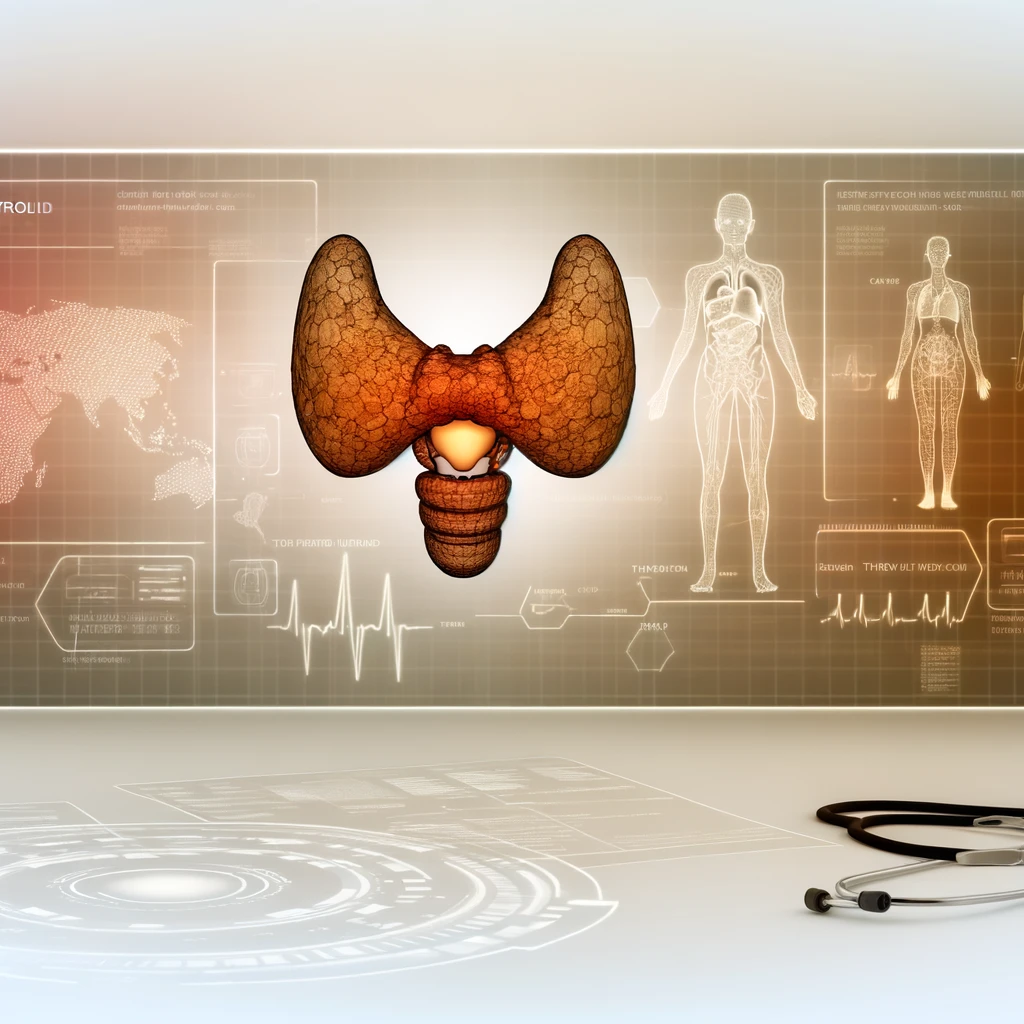
Thyroid Health: Symptoms, Diagnoses, and Treatments
The thyroid gland, a small yet significant component of the endocrine system, plays a vital role in regulating metabolism, energy levels, and overall hormonal balance. Understanding the nuances of thyroid health is essential for maintaining overall well-being. This article delves into the symptoms, diagnoses, and treatment options for thyroid-related conditions, providing a comprehensive guide to managing thyroid health effectively.
Understanding the Thyroid Gland
Located at the base of the neck, the thyroid gland produces hormones that influence various bodily functions. The primary hormones produced are thyroxine (T4) and triiodothyronine (T3), which regulate metabolic rate, heart function, digestive health, and more.
Role of Thyroid Hormones
Thyroid hormones are crucial for metabolism regulation, impacting how the body converts food into energy. They also influence growth and development, particularly in infants and children. Additionally, these hormones maintain cardiovascular health, support the nervous system, and aid in maintaining a healthy weight.
Common Thyroid Symptoms
Thyroid conditions can manifest in various ways, often categorized into hyperthyroidism and hypothyroidism.
Symptoms of Hyperthyroidism
- Increased heart rate
- Unexplained weight loss
- Nervousness or anxiety
- Heat intolerance
- Tremors
Symptoms of Hypothyroidism
- Fatigue
- Weight gain
- Cold intolerance
- Depression
- Dry skin and hair
Diagnosing Thyroid Conditions
Diagnosing thyroid disorders involves a combination of physical exams, blood tests, and imaging techniques. Commonly used tests include:
Thyroid Function Tests
Blood tests measure levels of TSH, T4, and T3 to assess thyroid function. Abnormal levels indicate hyperthyroidism or hypothyroidism.
Imaging Tests
Ultrasounds or thyroid scans provide visual assessments of the gland, detecting nodules or structural abnormalities.
Biopsy
A fine-needle aspiration biopsy may be performed if nodules or lumps are detected, determining if they are benign or malignant.
Treatment Options for Thyroid Disorders
Treatment varies based on the specific thyroid condition and its severity. Common treatments include:
Medications
For hyperthyroidism, antithyroid drugs reduce hormone production. In hypothyroidism, synthetic hormones like levothyroxine replace deficient hormones.
Radioactive Iodine Therapy
This treatment is often used for hyperthyroidism, shrinking the thyroid gland and reducing hormone production. It's a non-invasive option with few side effects.
Surgery
In severe cases, thyroidectomy may be necessary, particularly if cancer is detected or other treatments are ineffective.
Maintaining Thyroid Health
Regular monitoring and a healthy lifestyle are key to managing thyroid health. This includes a balanced diet rich in iodine, regular exercise, and stress management techniques.
Dietary Considerations
Ensure adequate intake of iodine, selenium, and zinc, which support thyroid function. Avoid excessive consumption of goitrogens found in certain vegetables, as they may interfere with hormone production.
Lifestyle Adjustments
Regular exercise and stress management techniques like yoga or meditation can help maintain hormonal balance and overall health.
In conclusion, understanding and managing thyroid health is essential for maintaining overall well-being. By recognizing symptoms, obtaining accurate diagnoses, and implementing appropriate treatments, individuals can effectively manage thyroid conditions and lead a healthy, balanced life.
Related Articles





